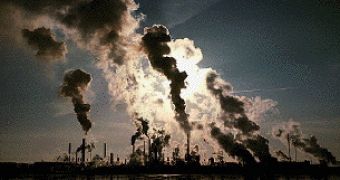A new study published in today's issue of the journal Environmental Research Letter argues that over 2 million yearly deaths are directly linked to air pollution.
Researchers say that some of the people who are constantly exposed to dangerous levels of air pollution risk to sooner or later develop heart and/or lung issues.
In time, these health problems can prove fatal, Live Science informs us.
By the looks of it, the main culprit behind these 2.1 million deaths is fine particulate matter.
This type of air pollution refers to small particles that are released into the environment by industries, and has a devastating effect on public health.
More precisely, the particles tend to accumulate inside the human body, and damage the organs that they come in contact with, the same source details.
Exposure to human-sourced ozone has also been linked to 470,000 yearly deaths.
“We estimate that, at present, 470,000 premature respiratory deaths are associated globally and annually with anthropogenic ozone, and 2.1 million deaths with anthropogenic PM2.5-related cardiopulmonary diseases (93%) and lung cancer (7%),” the scientists write in the Abstract to their paper.
Specialists say that, as their investigations have shown, deaths linked to air pollution are most common in highly industrialized countries in East and South Asia.
This is because air pollution in these regions is far worse than it is in other parts of the world.
Jason West, an assistant professor of environmental sciences at the University of North Carolina, commented on these findings as follows:
“Air pollution is an important problem. It's probably one of the most important environmental risk factors for health.”
Otherwise put, high officials worldwide must speed up efforts to curb air pollution.
Such measures are sure to translate into an increase in the life expectancy of numerous people who presently have no choice except breathe in loads of harmful chemical compounds.

 14 DAY TRIAL //
14 DAY TRIAL //